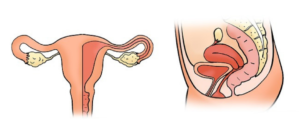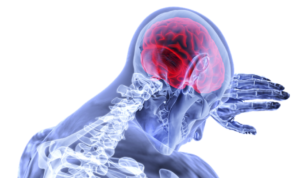Vaginismus, vulvodynia, vestibulodynia, vaginitis, vulvar lichen sclerosus, vaginal atrophy, vulvitis…
Any of these might be names that your “painful sex” has been given, but they don’t tell you much about the root cause. Painful sex itself is medically termed “dyspareunia”- but again, if a doctor tells you that you have dyspareunia, it doesn’t leave you any wiser.
Even after you have been given a diagnosis (and many women never are), it is more important to understand the cause of your pain. While there is rarely one source of the pain, these are five areas that can contribute to the cycle of pain to ask your health professional about.
Skin.
The external skin of the vulva or the internal skin of the vagina is an often overlooked source of pain. Raw, chafed, inflamed skin is painful to rub on your arm, so why would it be any different in the vulva or vagina? Sore, vulnerable and fragile vaginal or vulval skin can be due to many causes, including hormones, allergies, mucosal inflammation from other sources or nutrient deficiencies. Vaginal dryness can be a contributing factor, but is often not the only cause (or even the most important cause). Tight scar tissue in the skin from episiotomies is another source of pain with sex. Has your health professional ruled all of these out?
Nerves.
Nerves convey information about sensation to your brain. Sometimes, though, the nerves themselves get “caught up in the action” creating a type of nerve inflammation called neurogenic inflammation. This creates over-sensitive nerves, technically known as “peripheral sensitisation”.
Organs.
Tender or inflamed organs can be painful when pressure is applied to them. A problem with your bladder can give you pain with sex, especially in specific positions. Possibilities include urinary tract infection, urethritis or interstitial cystitis/painful bladder syndrome. Irritable bowel syndrome can also cause pain with sex, as there is often significant pressure on the rectum and the small intestine through the walls of the vagina. Endometriosis is an inflammatory condition leading to formation of adhesions or internal scars, and a common cause of painful sex.
Muscles.
It is rare that I see a woman with painful sex who does not have some muscular cause as part of the picture. Stinging after sex can be an issue with the skin – but it can also be an early sign of problems with the muscles. It is important that all parts of the pelvic floor muscles, from the surface to the deep muscles, are assessed, as well as the deep internal hip muscles (obturator internus). More commonly, it is assumed that muscles are the sole cause when there are other causes that need to be addressed as well. While muscular problems are important to address, it is rarely sufficient to work only on the muscular causes of painful sex.
Brain.
The brain causes of painful sex fall into two categories: the over-blamed brain and the under-blamed brain. In the over-blamed brain, it is assumed that stress, relationship problems and psychological problems are to blame for most of the painful sex. This is rarely the case. In the under-blamed brain, the contribution of the central nervous system to the maintenance of your pain is undervalued. Central sensitisation is the medical term for when your brain and nervous system are actually helping to drive your pain – and it does not mean you are being a hypochondriac! Your health professional should be able to describe the ways in which the brain acts to perpetuate pain. In this situation it is a must to retrain your brain. My e-book Outsmart Your Pain describes the brain’s role in your pain and how to break the cycle. It can be ordered here.
Ask your health professional if they have ticked off all five sources of pain in your assessment.
They should be able to give you a rough percentage that each is likely to be contributing to your pain.
If identifying potential sources of the pain is important, it’s even more important to identify the processes causing your continuing pelvic pain – but that’s the topic for another blog post.
Now that you know what areas are involved, you may be interested in a brief summary of ten reasons why sex hurts. There may also be special considerations for pain with sex in the older woman. And let’s face it, sometimes it can just be a challenge to track down that elusive libido!
If you would like to solve your painful sex – whatever “V-Word” it might have been called – contact us to make an appointment.
GENERAL ENQUIRIES
(07) 3277 0226
(07) 3277 0216
- 12 Edna St,
Salisbury Queensland 4107
Autralia



